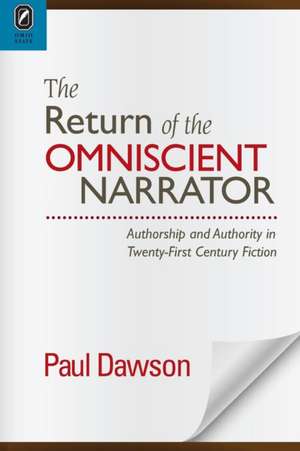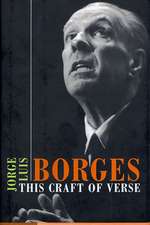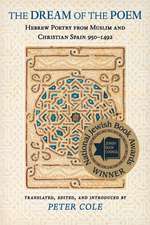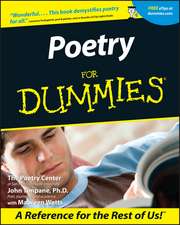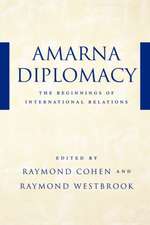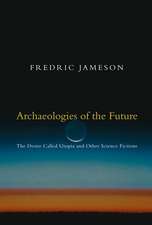The Return of the Omniscient Narrator: Authorship and Authority in Twenty-First Century F: THEORY INTERPRETATION NARRATIV
Autor Paul Dawsonen Limba Engleză Paperback – 11 dec 2015
The Return of the Omniscient Narrator: Authorship and Authority in Twenty-First Century Fiction by Paul Dawson argues that the omniscient narrator, long considered a relic of the eighteenth- and nineteenth-century novel, has reemerged as an important feature of contemporary British and American literary fiction. It further argues that the development of contemporary omniscience can be situated in relation to ongoing anxieties about the novel’s decline of cultural authority in the age of digital media. In this context the book identifies and classifies new modes of omniscient narration that are neither nostalgic revivals nor parodic critiques of classic omniscience, but the result of experimentations with narrative voice in the wake of postmodern fiction.
To address this phenomenon, the book reformulates existing definitions of literary omniscience, shifting attention away from questions of narratorial knowledge and toward omniscient narration as a rhetorical performance of narrative authority that invokes and projects a historically specific figure of authorship. Through a study of fiction by authors such as Zadie Smith, Jonathan Franzen, Richard Powers, Martin Amis, Rick Moody, Edward P. Jones, and Nicola Barker, the book analyzes how the conventional narrative authority of omniscient narrators is parlayed into claims for the cultural authority of authors and of the novel itself.
In the course of its investigation, The Return of the Omniscient Narrator engages with major movements in narrative theory—rhetorical, cognitive, and feminist—to challenge and reconsider many key narratological categories, including Free Indirect Discourse, the relation between voice and focalization, and the narrative communication model. This challenge is framed by an argument for a discursive approach to narrative fiction that addresses the neglect of authorship in narrative theory.
To address this phenomenon, the book reformulates existing definitions of literary omniscience, shifting attention away from questions of narratorial knowledge and toward omniscient narration as a rhetorical performance of narrative authority that invokes and projects a historically specific figure of authorship. Through a study of fiction by authors such as Zadie Smith, Jonathan Franzen, Richard Powers, Martin Amis, Rick Moody, Edward P. Jones, and Nicola Barker, the book analyzes how the conventional narrative authority of omniscient narrators is parlayed into claims for the cultural authority of authors and of the novel itself.
In the course of its investigation, The Return of the Omniscient Narrator engages with major movements in narrative theory—rhetorical, cognitive, and feminist—to challenge and reconsider many key narratological categories, including Free Indirect Discourse, the relation between voice and focalization, and the narrative communication model. This challenge is framed by an argument for a discursive approach to narrative fiction that addresses the neglect of authorship in narrative theory.
Din seria THEORY INTERPRETATION NARRATIV
-
 Preț: 283.42 lei
Preț: 283.42 lei -
 Preț: 303.59 lei
Preț: 303.59 lei -
 Preț: 239.67 lei
Preț: 239.67 lei -
 Preț: 234.28 lei
Preț: 234.28 lei -
 Preț: 283.11 lei
Preț: 283.11 lei -
 Preț: 281.44 lei
Preț: 281.44 lei -
 Preț: 266.08 lei
Preț: 266.08 lei -
 Preț: 283.31 lei
Preț: 283.31 lei -
 Preț: 288.40 lei
Preț: 288.40 lei -
 Preț: 327.16 lei
Preț: 327.16 lei -
 Preț: 280.67 lei
Preț: 280.67 lei -
 Preț: 314.98 lei
Preț: 314.98 lei -
 Preț: 293.63 lei
Preț: 293.63 lei -
 Preț: 258.54 lei
Preț: 258.54 lei -
 Preț: 190.00 lei
Preț: 190.00 lei -
 Preț: 282.71 lei
Preț: 282.71 lei -
 Preț: 329.77 lei
Preț: 329.77 lei -
 Preț: 502.96 lei
Preț: 502.96 lei -
 Preț: 363.79 lei
Preț: 363.79 lei -
 Preț: 344.48 lei
Preț: 344.48 lei -
 Preț: 286.61 lei
Preț: 286.61 lei -
 Preț: 273.08 lei
Preț: 273.08 lei -
 Preț: 315.95 lei
Preț: 315.95 lei -
 Preț: 274.07 lei
Preț: 274.07 lei -
 Preț: 274.27 lei
Preț: 274.27 lei -
 Preț: 255.21 lei
Preț: 255.21 lei -
 Preț: 282.58 lei
Preț: 282.58 lei -
 Preț: 240.43 lei
Preț: 240.43 lei -
 Preț: 255.85 lei
Preț: 255.85 lei -
 Preț: 354.45 lei
Preț: 354.45 lei -
 Preț: 277.71 lei
Preț: 277.71 lei -
 Preț: 237.76 lei
Preț: 237.76 lei -
 Preț: 504.32 lei
Preț: 504.32 lei -
 Preț: 352.66 lei
Preț: 352.66 lei -
 Preț: 543.17 lei
Preț: 543.17 lei -
 Preț: 324.14 lei
Preț: 324.14 lei -
 Preț: 285.74 lei
Preț: 285.74 lei -
 Preț: 311.92 lei
Preț: 311.92 lei -
 Preț: 342.42 lei
Preț: 342.42 lei - 23%
 Preț: 589.73 lei
Preț: 589.73 lei -
 Preț: 227.88 lei
Preț: 227.88 lei -
 Preț: 281.96 lei
Preț: 281.96 lei -
 Preț: 272.35 lei
Preț: 272.35 lei
Preț: 283.34 lei
Nou
Puncte Express: 425
Preț estimativ în valută:
54.22€ • 58.88$ • 45.55£
54.22€ • 58.88$ • 45.55£
Carte tipărită la comandă
Livrare economică 22 aprilie-06 mai
Preluare comenzi: 021 569.72.76
Specificații
ISBN-13: 9780814252598
ISBN-10: 0814252591
Pagini: 278
Dimensiuni: 152 x 229 x 20 mm
Greutate: 0.43 kg
Ediția:1
Editura: Ohio State University Press
Colecția Ohio State University Press
Seria THEORY INTERPRETATION NARRATIV
ISBN-10: 0814252591
Pagini: 278
Dimensiuni: 152 x 229 x 20 mm
Greutate: 0.43 kg
Ediția:1
Editura: Ohio State University Press
Colecția Ohio State University Press
Seria THEORY INTERPRETATION NARRATIV
Recenzii
“Although many writers, as well as critics and narratologists, are well aware of the contested nature and limitations of both omniscience as a phenomenon and omniscient modes of storytelling, Paul Dawson demonstrates not only that these modes, which were virtually abandoned by modernist fiction, returned in many novels in the twenty-first century, but also that they have served to reclaim the narrative and cultural authority of the authors in question and of the novel and literature at large.” —Ansgar Nunning, University of Giessen, Germany
Notă biografică
Paul Dawson is senior lecturer in the School of the Arts and Media at the University of New South Wales, Australia.
Cuprins
Introduction—The Return of Omniscience in Contemporary Fiction
Chapter 1) Omniscience and Narrative Authority
Chapter 2) The Direct Address and the Ironic Moralist
Chapter 3) Prolepsis and the Literary Historian
Chapter 4) Style and the Pyrotechnic Storyteller
Chapter 5) Polymathic Knowledge, the Immersion Journalist, and the Social Commentator
Chapter 6) Voice and Free Indirect Discourse in Contemporary Omniscient Narration
Chapter 7) Paralepsis and Omniscient Character Narration
Chapter 8) Real Authors and Real Readers: A Discursive Approach to the Narrative Communication Model
Conclusion
Chapter 1) Omniscience and Narrative Authority
Chapter 2) The Direct Address and the Ironic Moralist
Chapter 3) Prolepsis and the Literary Historian
Chapter 4) Style and the Pyrotechnic Storyteller
Chapter 5) Polymathic Knowledge, the Immersion Journalist, and the Social Commentator
Chapter 6) Voice and Free Indirect Discourse in Contemporary Omniscient Narration
Chapter 7) Paralepsis and Omniscient Character Narration
Chapter 8) Real Authors and Real Readers: A Discursive Approach to the Narrative Communication Model
Conclusion
Descriere
Argues that the omniscient narrator, long considered a relic of the eighteenth- and nineteenth-century novel, has reemerged as an important feature of contemporary British and American literary fiction.
